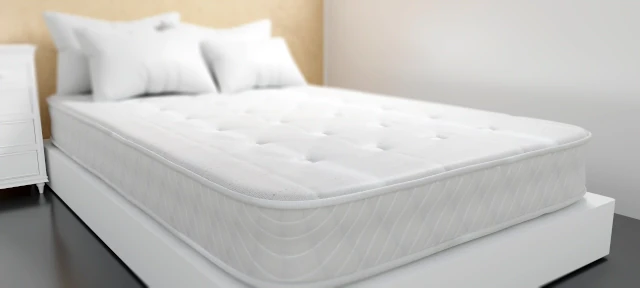
The Best Mattresses for a Good Night's Sleep: Memory Foam, Hybrid, Coir, and More
- Dr. Prachi Saini (MPT)
Connect with our expert physiotherapist for personalized physiotherapy advice.
- Memory Foam Mattresses: Ideal for Pressure Relief and Support
Memory foam mattresses are popular for their ability to conform to the body’s shape, providing excellent support and pressure relief. They’re ideal for side sleepers who need extra cushioning for their hips and shoulders.
Benefits:Contours to the body, reducing pressure points.
Absorbs movement, making it great for couples.
Suitable for side sleepers and those with joint pain.
May retain heat, so look for options with cooling gel foam.
Can feel too soft for some stomach sleepers.
- Innerspring Mattresses: Great for Bounce and Breathability
Innerspring mattresses have been a classic choice for decades, known for their coil support system. They offer a firmer feel and excellent breathability, making them suitable for people who prefer a traditional mattress feel.Innerspring mattresses have been a classic choice for decades, known for their coil support system. They offer a firmer feel and excellent breathability, making them suitable for people who prefer a traditional mattress feel.
Benefits:Provides strong support and firmness.
Good airflow, which helps regulate body temperature.
Often more affordable than memory foam or hybrid mattresses.
May not offer as much contouring for pressure relief.
Can transfer motion more than memory foam.
- Hybrid Mattresses: The Best of Both Worlds
Hybrid mattresses combine the support of innerspring coils with the comfort of memory foam or latex layers. They’re versatile and suitable for most sleep positions, offering both pressure relief and support.
Benefits:Provides a balanced feel, with support and contouring.
Good for couples due to motion isolation.
Ideal for sleepers who want a mix of bounce and cushioning.
Can be more expensive than traditional innerspring or foam mattresses.
Heavier and harder to move.
- Latex Mattresses: Natural Comfort and Durability
Latex mattresses are known for their natural materials, durability, and responsiveness. They offer a bouncy yet supportive feel and are naturally hypoallergenic, making them great for allergy sufferers.
Benefits:Naturally resistant to dust mites and mold.
Offers a firm yet cushioned support.
Eco-friendly and long-lasting.
Can be more expensive than memory foam.
May feel too firm for some side sleepers.
- Adjustable Air Mattresses: Customizable Comfort
Adjustable air mattresses allow sleepers to customize the firmness by inflating or deflating air chambers. They are ideal for couples with different sleep preferences, as each side can be adjusted individually.
Benefits:Customizable firmness for each sleeper.
Great for people with back pain who need variable support.
Long lifespan if well-maintained.
Higher price point compared to standard mattresses.
May require regular maintenance to ensure the air system works properly.
Choosing the Right Mattress for Your Sleep Style
- Side Sleepers:
Memory foam or hybrid mattresses are ideal, as they provide cushioning for the shoulders and hips.
- Back Sleepers:
Look for a medium-firm mattress that offers both support and comfort to keep the spine aligned.
- Stomach Sleepers:
A firmer mattress, such as a latex or hybrid, helps prevent the hips from sinking too deeply.
- Combination Sleepers:
Hybrid mattresses are versatile and cater to various sleep positions throughout the night.
Additional Factors to Consider
- Firmness Level:
Your weight and sleep position will influence the ideal firmness level. Heavier sleepers may prefer a firmer mattress, while lighter individuals often find softer mattresses more comfortable.
- Motion Isolation:
If you share a bed, look for a mattress with good motion isolation to reduce disturbances from your partners movements.
- Temperature Regulation:
Some mattresses retain heat more than others. Look for cooling technology, such as gel-infused memory foam or breathable latex, if you tend to sleep hot.
- Edge Support:
If you frequently sit on the edge of your bed, a hybrid or coir mattress with reinforced edges can offer better support.
When Should You Replace Your Mattress?
A good mattress typically lasts around 7-10 years. If you notice sagging, discomfort, or wake up with aches, it may be time to invest in a new one. Coir mattresses, with proper care, can last even longer due to their durable natural materials.
Conclusion
Choosing the best mattress for a good night sleep depends on your sleep style, preferences, and specific needs. Whether you prefer the natural firmness of a coir mattress, the contouring comfort of memory foam, or the versatility of a hybrid, finding the right mattress can significantly improve your sleep quality. Consider factors like firmness, breathability, and motion isolation to make the most suitable choice for your lifestyle.
Connect with our expert physiotherapist for personalized physiotherapy advice.



